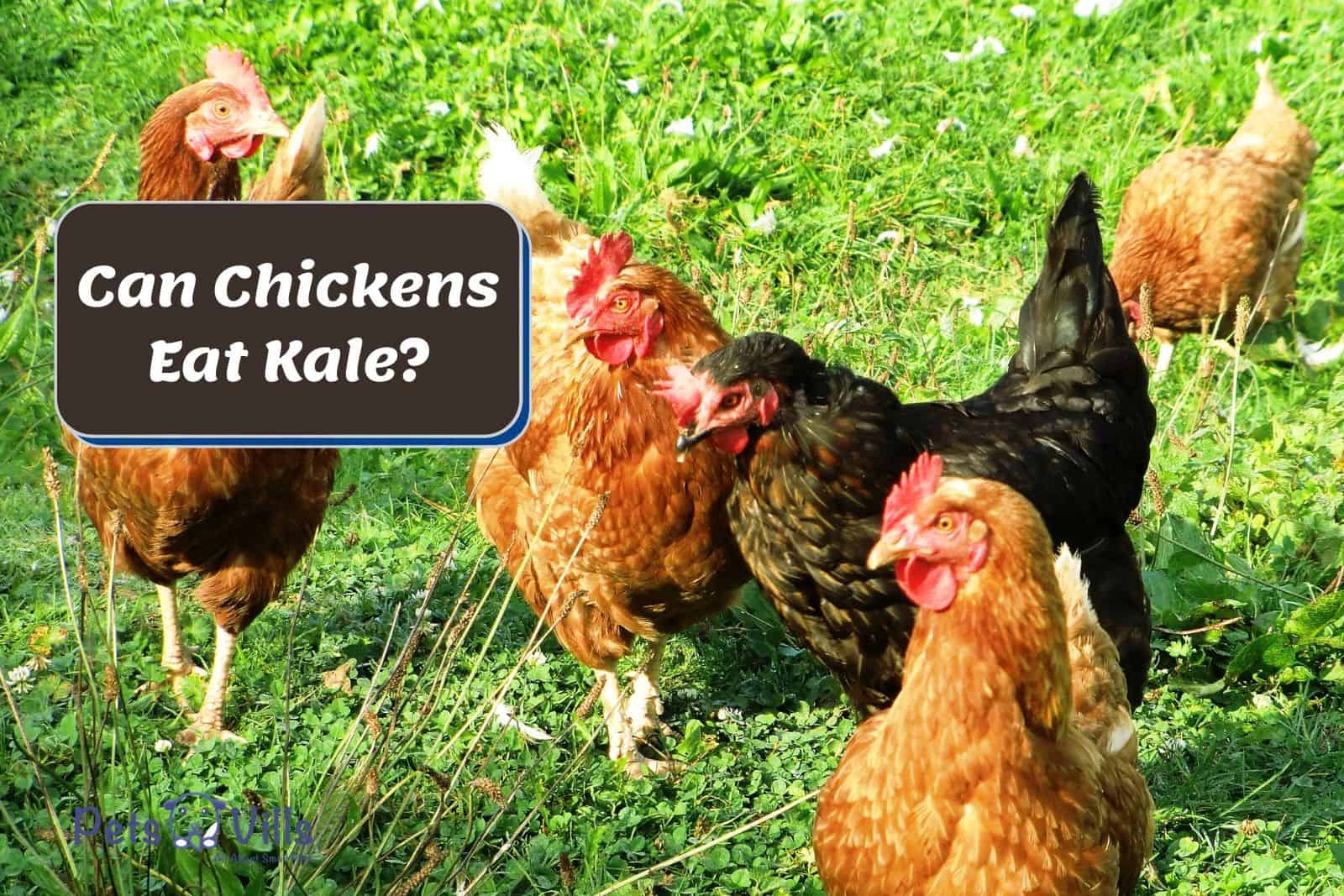Kale is a leafy green vegetable known for its superior nutritional value. So if you are raising backyard chickens, you may wonder, can chickens eat kale?
According to experts, chickens can eat kale with outstanding results. In fact, this superfood is loaded with beneficial nutrients, especially vitamins A, C, and K (1).
However, it’s wise to dive deeper into everything about this vegetable.
So please read on, and see whether it’s an ideal option to add to your chickens’ diet.
Table of Contents
Key Takeaways
- Kale is a highly valued vegetable food item for chickens. Its various nutrients and vitamins make it a must-have treat in any varied diet for chickens.
- Serving kale to chickens can be done via three methods. Poultry owners can feed their chickens fresh raw kale, and cooked kale, or mix it into their daily feeds.
- Even with its highly nutritious makeup, kale can’t meet a chicken’s dietary needs. Using it as an extra treat once or twice weekly would be best.
Is It Healthy For Chickens To Eat Kale?
Kale is undoubtedly considered a safe and healthy food for chickens. It shouldn’t be too shocking to learn, considering it’s one of the most nutrient-dense foods on the planet.
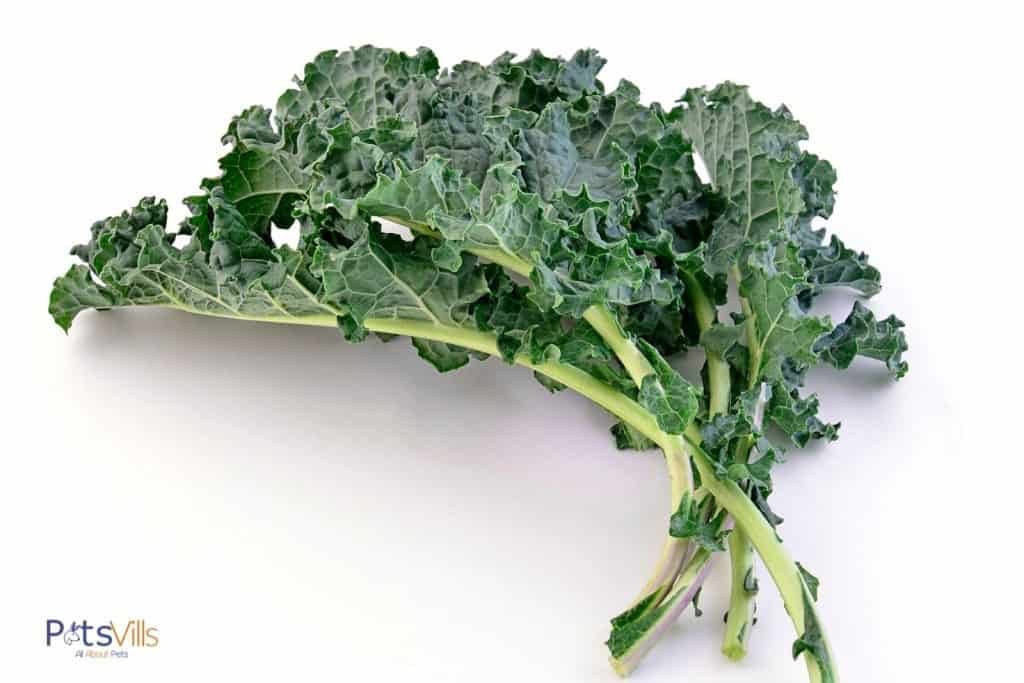
It’s even considered a “superfood for both us and chickens” (2). So it’s easy to see why people value using it as a healthy treat for their favorite flock.
Honestly, feeding these leafy greens to your chickens can benefit their health a lot. All you have to do is look at this overview of its nutritional value (1):
- Vitamin A: 206% of the DV (from beta-carotene)
- Vitamin K: 684% of the DV
- Vitamin C: 134% of the DV
- Vitamin B6: 9% of the DV
- Manganese: 26% of the DV
- Calcium: 9% of the DV
- Copper: 10% of the DV
- Potassium: 9% of the DV
- Magnesium: 6% of the DV
But looking at all these percentages can be overwhelming. So it’d also be wise to look at the health benefits for chickens provided by kale.
It’s a much more straightforward way to demonstrate its value. So without further ado, let’s jump into the first beneficial trait provided by this super vegetable:
#1 Loaded With Powerful Antioxidants
Like other leafy greens such as spinach and cabbage, kale is high in antioxidants. As a result, it’s a valuable attribute in keeping a chicken’s body healthy.
For instance, antioxidants will aid in counteracting oxidative damage caused by free radicals. It’s a complicated way of saying that they help a chicken remain in good condition.
So having a vegetable with a high number of them in a chicken’s diet will only help. I certainly feel much better when providing kale as a healthy snack for my chickens.
#2 Excellent Source of Vitamin C
Kale is a leafy vegetable known for its high levels of vitamin C. Poultry owners need to be aware of this attribute because vitamin C is vital for body development and growth (3).
Vitamin C will also help repair body tissues and various other body functions. It even helps with collagen formulation, immune system performance, and wound healing.
Overall, it’s a valuable vitamin to have in your chicken’s body. Kale represents an easy way to provide your chickens’ with a reliable resource.
#3 High Amount of Vitamin K
Vitamin C isn’t the only one that kale offers in high amounts. Poultry owners also can rely on kale’s high vitamin K content for positive benefits.
For example, vitamin K helps make proteins for blood clotting and bone-building (4). It’s also found and used by other organs such as the liver, brain, heart, and pancreas.
These various uses make it essential to provide chickens with vitamin K. Due to this, kale comes in handy to help get this valuable nutrient.
It’s often even my go-to tasty treat for chickens when they aren’t feeling their best. Kale seems to speed up their recovery more than most other dietary additions.
Can Chickens Eat Kale Stems?
Chickens can eat kale stems. But they are tough, chewy, and fibrous, so they require some preparation.
Your best bet is cooking the stems to make them safe for chicken consumption. I’d recommend steaming them, but you can also boil them.
Once cooked, you can feed them to the chickens or cut them into small pieces first. Either way, it’s a great treat and won’t cause choking hazards.
Looking to add some variety to your chickens’ diet? Check out our articles on “can chickens eat cucumber peels,” “can chickens eat spaghetti squash,” and “can chickens eat olives.” These articles will provide you with all the information you need to keep your feathered friends happy and healthy.
How To Feed Kale To Chickens
One of the best parts about kale is all its components can be fed to the chickens. You also have a choice regarding how it’s served, raw or cooked.
Cooked kale is many people’s preferred choice for chickens because it’s easier for them to eat. But I’ll walk you through all the methods below so that you can find a suitable one.
#1 Fresh Raw Kale
Your first option is feeding chickens fresh raw kale. It’s my preferred method because it’ll provide the chickens with the most nutrition.
The only downside is that raw kale is a bit tougher for chickens. In particular, the stems can be a downright challenge for them.
But I’d suggest cutting the leafy greens into smaller pieces before serving. It does a wonderful job of making them easier to eat.
#2 Cooked Kale
Another method to feed chickens is to cook the kale. But the cooking process will cause them to lose some of their nutrients.
On the positive side, it does soften the vegetable considerably. It ends up removing any choking hazard that may apply to fresh kale.
In this way, cooked kale is your safest option for feeding chickens. There’s also no unusual preparation step to do before serving it.
You just give it to the chickens and watch them peck/eat it. Honestly, it couldn’t be any more simple.
#3 Mixing Kale with their Feeds
Mixing kale into your chickens’ feed is a smart way to offer an additional boost of nutrition. But this method can only be done when serving chickens raw kale.
Sadly, I’ve found that cooked kale can cause the chicken feed to become wet and mushy. It’s nothing a chicken wants to eat.
The mixing process starts by cutting the kale into bits and pieces. Once cut, place them into their feeds and mix them thoroughly.
You then place it into their feeding bowl. If your chickens are anything like mine, they won’t even notice the kale is in their daily feed.
How Much And How Often To Feed Kale To Chickens
Despite its toxin-free, highly nutritious makeup, kale isn’t a regular diet staple. As with most vegetables, you’ll need to limit kale’s use.
The reason behind limiting its use is it doesn’t offer enough nutrition. In other words, kale can’t meet the chicken’s diet requirement by itself.
So feeding your chickens too much kale can prevent them from eating their feed. It’ll result in a slew of health issues from insufficient nutrition.
Most experts agree that kale and other vegetables should make up 10% of a healthy diet for chickens. The additional 90% needs to come from quality commercial feeds.
Ultimately, this 90/10 split between feeds and vegetables is a must. It’s the most efficient way to provide a complete diet for our feathered friends.
Other Vegetables That Chickens Can Eat
Kale is only one of a wide range of nutritious vegetables that chickens can eat. Here are a few other examples that are flock favorites among my chickens.
#1 Iceberg Lettuce
Can chickens eat iceberg lettuce?
Iceberg lettuce is a great treat to feed chickens, especially in summer. It earns this title due to its high water content.
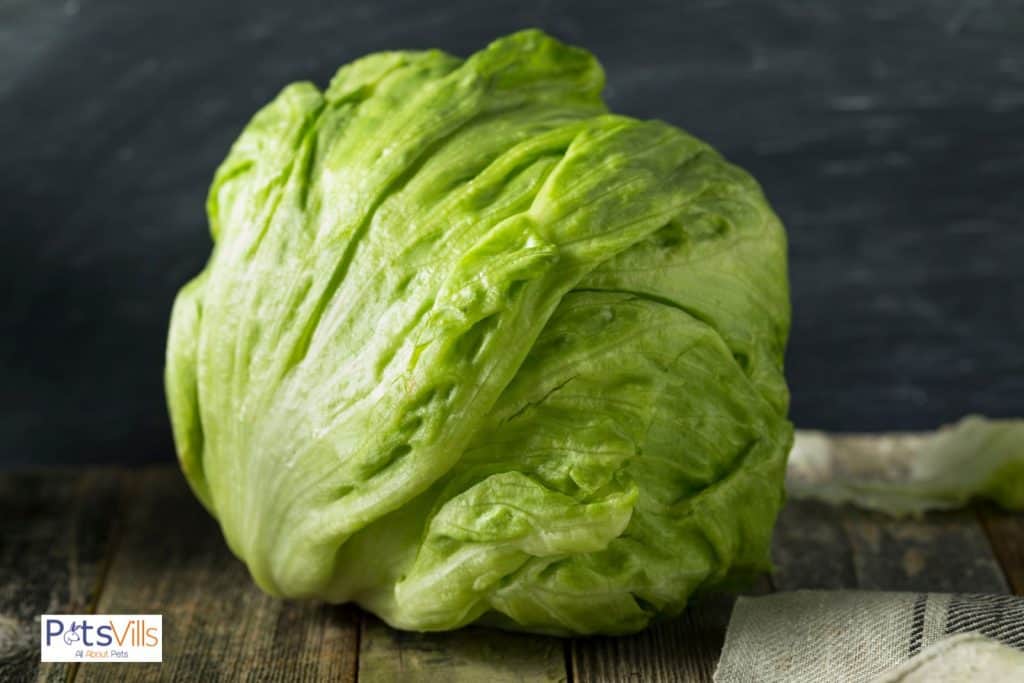
So you can imagine it being a godsend during those hot summer days. I often throw iceberg lettuce in the chicken coop in these conditions.
You’d be surprised by the positive effect of a secondary hydration source. I wouldn’t be caught dead without access to one for my flock in June, July, or August.
#2 Cucumbers
Cucumbers are excellent treats for chickens. This veggie is loaded with nutrition and high in water content to promote many benefits.
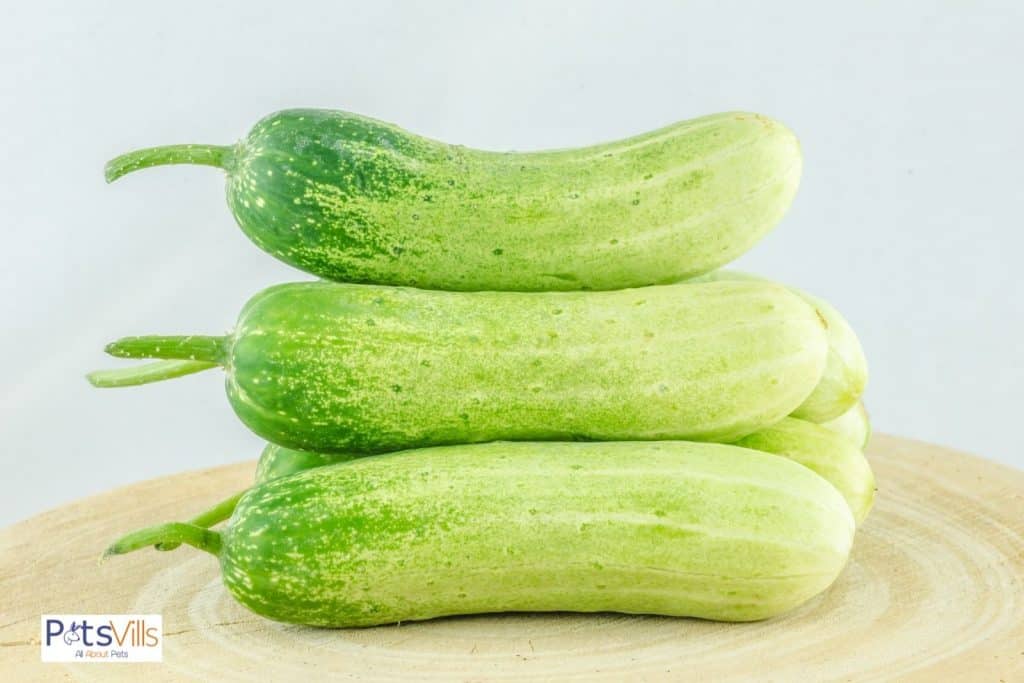
For example, it functions on two levels as a solid nutritious treat and hydration source. Plus, cucumbers are easy to digest/chew for both baby chickens and adult chickens.
#3 Spaghetti Squash
Spaghetti squash is a seasonal vegetable that’s found only during the winter season. But it’s worth it as this winter vegetable is rich in vitamins, minerals, and antioxidants.
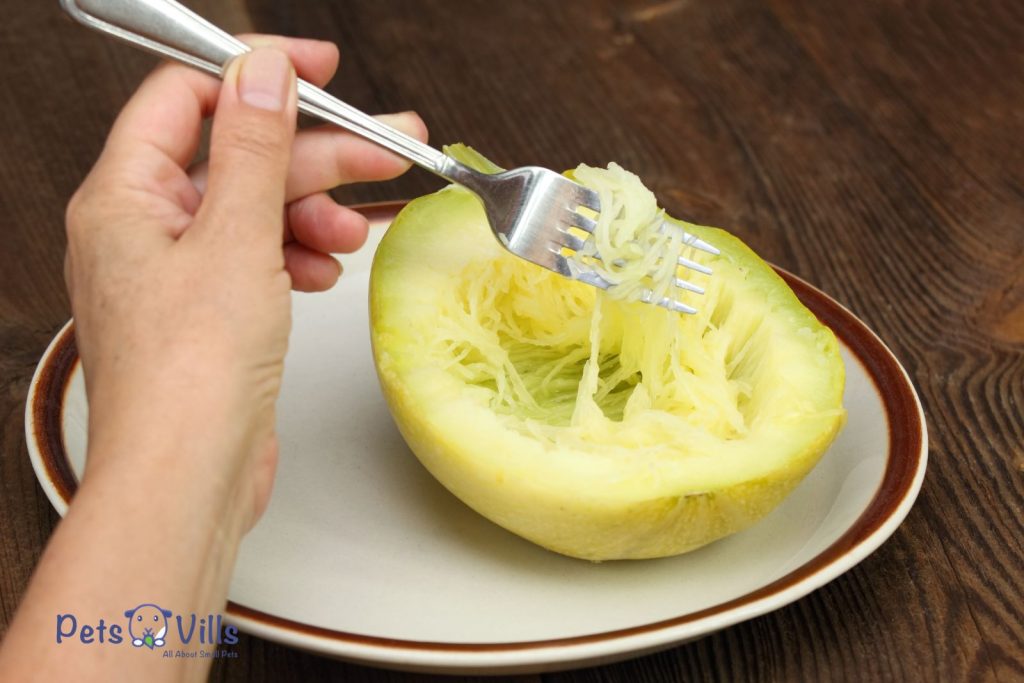
Your flock will also benefit from its reliable amount of fiber. As a result, it’ll do quite a job helping maintain a chicken’s digestive system.
FAQs
#1 What should chickens absolutely not eat?
Foods known as off-limits items for chickens include any nightshade family plants, raw potato, avocado, chocolate, citrus fruits, and uncooked beans.
#2 Do birds like to eat kale?
It’ll depend on the bird species, but most love eating leafy greens like kale. It’s certainly a favorite among chickens, based on my experience.
Conclusion
So can chickens eat kale? It’s a relatively easy question to answer, considering this superfood’s benefits as a treat for chickens.
But again, I must caution people about only using kale for chickens in moderation. You want to do it sparingly, even with highly nutritious food like kale.
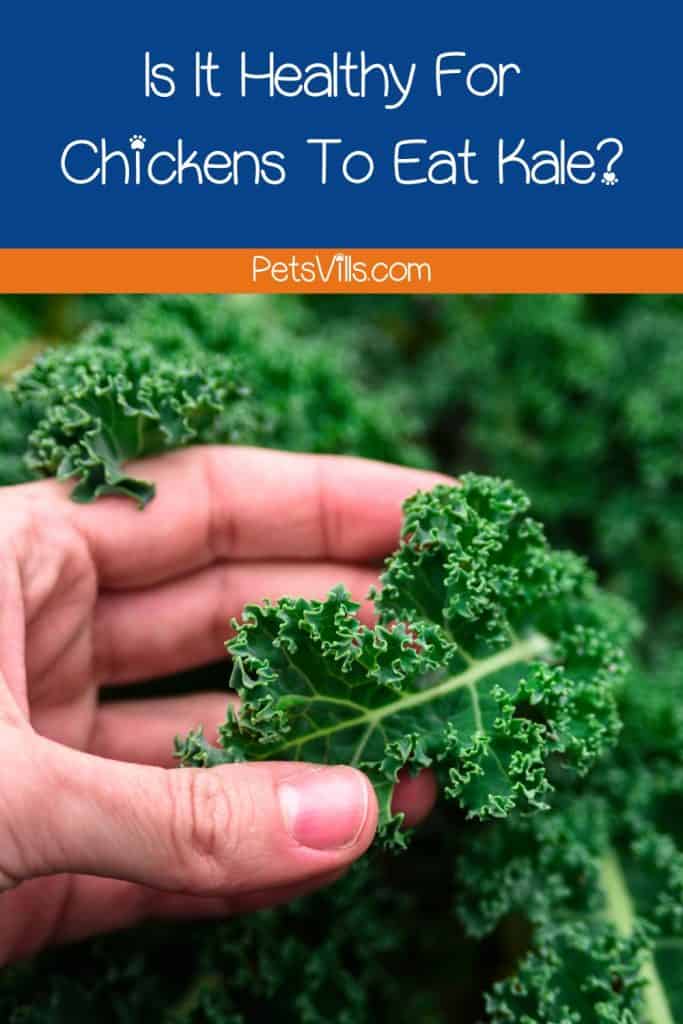
Resources
1. Kale, raw Nutrition Facts & Calories [Internet]. Self.com. 2019. Available from: https://nutritiondata.self.com/facts/vegetables-and-vegetable-products/2461/2
2. Kale [Internet]. The Nutrition Source. 2018. Available from: https://www.hsph.harvard.edu/nutritionsource/food-features/kale/
3. Shojadoost B, Yitbarek A, Alizadeh M, Kulkarni RR, Astill J, Boodhoo N, et al. Centennial Review: Effects of vitamins A, D, E, and C on the chicken immune system. Poultry Science [Internet]. 2021 [cited 2022 May 16];100:100930. Available from: https://www.sciencedirect.com/science/article/pii/S0032579120309810
4. Common nutrition-related problems of poultry | Animal & Food Sciences [Internet]. Uky.edu. 2017. Available from: https://afs.ca.uky.edu/poultry/common-nutrition-related-problems-poultry

My name is Ben Roberts, and I absolutely love animals. So, naturally, I love writing about them too! As far as my animals, I have a Pit-bull, a Beagle-lab mix, a Chihuahua, and one old cat. Each one of them provides me with a new adventure every day. And the best part is they’re all best friends. Well, except the cat when he gets a little annoyed.
FIND HIM ON: FACEBOOK and TWITTER.
Read his latest ARTICLES
Learn more about Benhere

